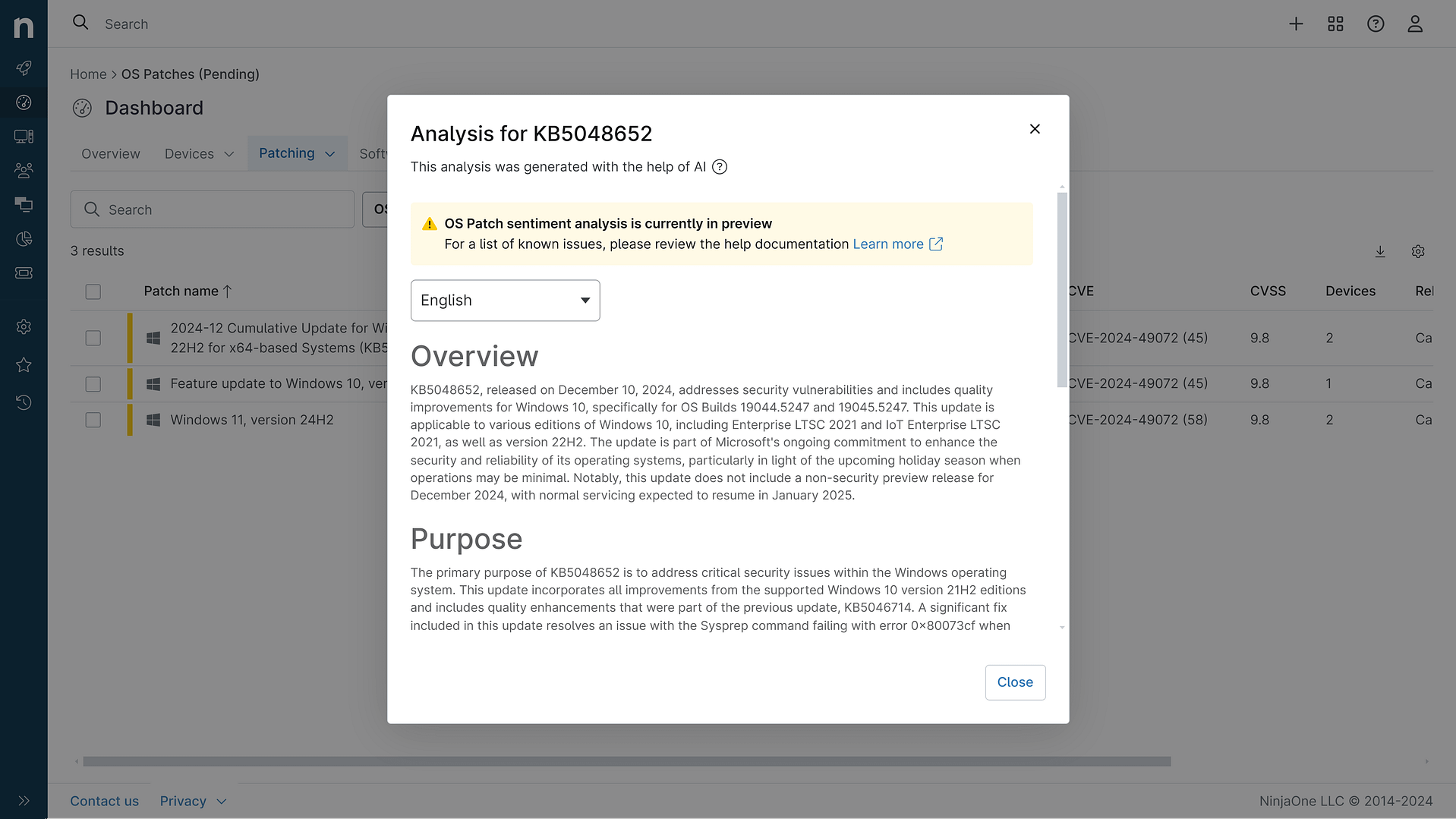KB5039893: Overview with user sentiment and feedback
Last Updated December 23, 2024
Probability of successful installation and continued operation of the machine
Overview
The KB5039893 update, released on July 9, 2024, is a cumulative update for the .NET Framework 3.5 and 4.8.1 specifically targeting Windows 10 versions 21H2 and 22H2. This update is designed to enhance the security and reliability of the .NET Framework, addressing critical vulnerabilities and improving overall system performance. It is recommended for users to apply this update as part of their regular maintenance routines to ensure their systems remain secure and efficient.
This update includes significant security improvements, particularly addressing a remote code execution vulnerability identified as CVE-2024-38081. Additionally, it resolves various quality and reliability issues, including memory leak problems associated with AccessibleObjects in WinForms and issues related to x509 certificate usage in Azure AD. Users are encouraged to install this update to benefit from these enhancements and to maintain the integrity of their systems.
General Purpose
The primary purpose of KB5039893 is to provide essential security and reliability improvements for the .NET Framework 3.5 and 4.8.1. The update specifically addresses a critical elevation of privilege vulnerability, CVE-2024-38081, which could allow an attacker to execute arbitrary code on the affected system. By applying this update, users can mitigate the risks associated with this vulnerability.
In addition to security fixes, the update also includes quality improvements that enhance the performance of applications utilizing the .NET Framework. Notable fixes include addressing memory leaks in WinForms and resolving issues with x509 certificates in Azure Active Directory. These improvements are crucial for developers and IT professionals who rely on the .NET Framework for application development and deployment.
General Sentiment
The general sentiment surrounding KB5039893 appears to be cautious but acknowledges the necessity of the update. While many users recognize the importance of addressing security vulnerabilities, there are concerns regarding the breaking changes introduced by the update, particularly related to the System.IO.Path.GetTempPath method. Some users have expressed frustration over the potential impact on existing applications that may not be compatible with the new behavior of this method. However, the overall consensus is that the security enhancements outweigh the drawbacks, and users are encouraged to implement the update while being aware of the changes it brings.
Known Issues
- The update introduces breaking changes to the System.IO.Path.GetTempPath method, which may affect applications relying on its previous behavior.
- Users may experience differences in the returned path for SYSTEM and non-SYSTEM processes, which could lead to compatibility issues.
- Temporary workarounds are available but are not recommended as they may disable critical security fixes.
Disclaimer: We take measures to ensure that AI-generated content is of the highest possible quality, but we cannot guarantee its accuracy and recommend that users do their own independent research. Generated on 2024-12-21 10:13 PM
